



We are not separate from nature. We are nature defending itself. Every tree cut, every species lost, is not a loss to the wilderness—it is a wound to the human soul.
Nnimmo Bassey, Nigerian environmental activist, poet, and winner of the Right Livelihood Award
In recent times, many conferences and talks have reiterated the critical role of higher education institutions in promoting peaceful, just, and inclusive communities while creating compelling, accountable, and strong institutions.
SDG 16 addresses issues such as reducing violence, strengthening governance, protecting against child abuse, exploitation, trafficking, and corruption; at the same time, it strongly advocates strengthening national institutions as a necessary condition to implement and achieve many SDGs.
At Shiv Nadar University, departments work at the intersection of many aspects of Sustainable Development Goal 16 through teaching, research, and partnerships.
Here is a glimpse of some of our work.
TEACHING
Many Departments at the School of Humanities and Social Sciences offer core courses and a core common curriculum to students across the university on the themes of peace, justice, political economy,
and strengthening institutions. The students are exposed to the workings of national security, foreign policy formulation, diplomatic practices, and choices that inform the pursuit of power and influence across diverse political milieus and the workings of international, multilateral, and regional organizations. They also offer a robust sense of non-state actors – multinational and transnational corporations, epistemic communities, social movements, and transnational advocacy networks, traversing many issues – trade, security, development, environment, and the global refugee regime.
Student Stories
The Department of International Relations and Governance offers a course on Science Diplomacy (INT 342). As part of the course, a group of students prepared and presented their research paper titled “Beyond Practice: Theorising Science Diplomacy” at the Research Institute of India, Delhi where the session was chaired by Dr S K Varshney, with expert reviews shared by Dr Malti Goel and Dr Mukesh Kumar, former Director of the Indo-French Centre for the Promotion of Advanced Research (IFCPAR/ CEFIPRA).
Situating Protests in Southern Africa
Protests involve actions of discontentment and a lack of faith in an establishment. During a protest, more than one person can demand a change in the status quo. People engage in various activities, such as strikes, riots, rebellions, and civil disobedience, because they lack, among other things, a democratic space, representation, and transparency, food, or face an increased aggravation of human rights by the state, captured government institutions, and dwindling economies. In Southern Africa, the study argues that protests have increased due to the wave of the democratization process that has brought populist political activism. A qualitative method using secondary sources explored a selection of widespread protests in South Africa, Zimbabwe, Mozambique, and Eswatini between 2006 and 2022. Marxism, Liberalism, and Constructivism were used to describe and analyze protests theoretically. The study finds that protests and populism have a co-constitutive nature and can be divided into left-populist and anti-government, and rightpopulist and nationalistic. The twenty-first-century responses shown by the examined states lacked flexibility, consensus, and emancipatory factors; it has been all about violence, which is not different from the general responses of the same states in the nineteenth and twentieth centuries.
Chennattuserry, Joseph Chacko, and Fradreck Jockonia Mujuru. “Situating Protests in Southern Africa.” In Encyclopedia of New Populism and Responses in the 21st Century, pp. 943-949. Springer, Singapore, 2024.
RESEARCH
The Centre of Excellence for Himalayan Studies at Shiv Nadar University is a research centre focused on the economy, borders and identities, the environment and regional geopolitics of the wider Himalayan region, including the Hindu Kush and the Karakoram. The centre aims to engender a three-way conversation between central and local governments, academia, and the people in the Himalayan region, even as it remains attuned to geopolitics and its policy imperatives.
The center’s wide range of work reflects the university’s global outlook and international ambitions, identifying and creating a network of scholars in the field, both in India and abroad, and
bringing together various disciplinary and sectoral approaches to studying the region.
In 2024, the Centre produced some very significant pieces of academic research that are publicly accessible and policy-relevant.


Role of the Indo-Tibetan Border Police and the Sashastra Seema Bal in India’s national security architecture
Dr. Jabin T. Jacob, Director, Center for Himalayan Studies, contributed a chapter on the role of the Indo-Tibetan Border Police and the Sashastra Seema Bal in India’s national security architecture in a recently published volume, Institutional Roots of India’s Security Policy, edited by Milan Vaishnav (New York: Oxford University Press, 2024).


Theoretical dimensions of Indian foreign policy for the journal Studies in Indian Politics
Siddharth Mallavarapu, Professor, International Relations and Governance, guest edited a Special Issue (SI) on theoretical dimensions of Indian foreign policy for the journal Studies in Indian Politics published by Sage. The SI includes both national and international contributors. Tejasvi Saxena (a doctoral
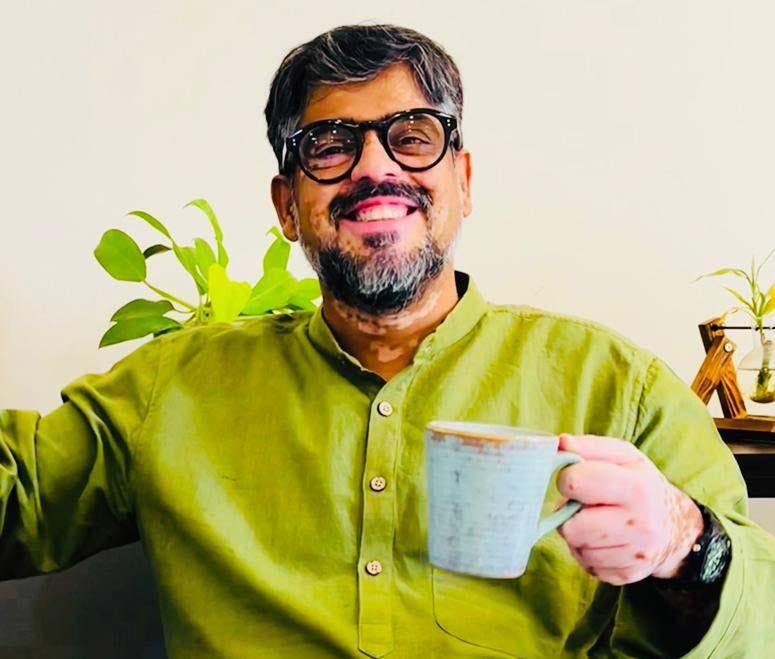
scholar), Dr. Sruthi Muraleedharan, and Dr. Medha, faculty from IRGS, are among the key contributors.
A Critical Study on Effectively Managing and Addressing the Diverse Needs and Complexities Encountered by Foreign Workers in the Republic of Singapore
Foreign workers comprise over 33% of Singapore’s workforce, playing an essential role in key sectors such as construction, healthcare, and domestic services. Despite their significant contributions, they face numerous challenges, including inadequate legal protection, exploitative working conditions, low wages, long hours, and substandard accommodations. This study examines the impact of societal attitudes, government policies, and employer practices on migrant workers’ experiences in Singapore. Highlighting the need for stronger legal protections, enhanced enforcement of labour rights, and greater accountability from employers to ensure fair wages and decent working conditions, the study emphasizes the importance of promoting social integration, equality, and anti-discrimination initiatives to reduce isolation and improve the quality of life for migrant workers.
Oberai, Ranjit Singh, Balamurugan Balusamy, and Suruchi Pandey. “A Critical Study on Effectively Managing and Addressing the Diverse Needs and Complexities Encountered by Foreign Workers in the Republic of Singapore.” In 2024 International Conference on Intelligent & Innovative Practices in Engineering & Management (IIPEM), pp. 1-6. IEEE, 2024.
Campus talks
At Shiv Nadar, the schools and departments conduct seminars, lectures, discussions, conferences, and workshops in collaboration with many experts on promoting peaceful and inclusive societies for sustainable development. Here is a glimpse of a few talks,
The World in Flux: Geopolitics in the Age of Disruption.
Shiv Nadar University hosted Ambassador Vikas Swarup, who gave a talk on the ongoing churn in global geopolitics. Ambassador Swarup spoke on the


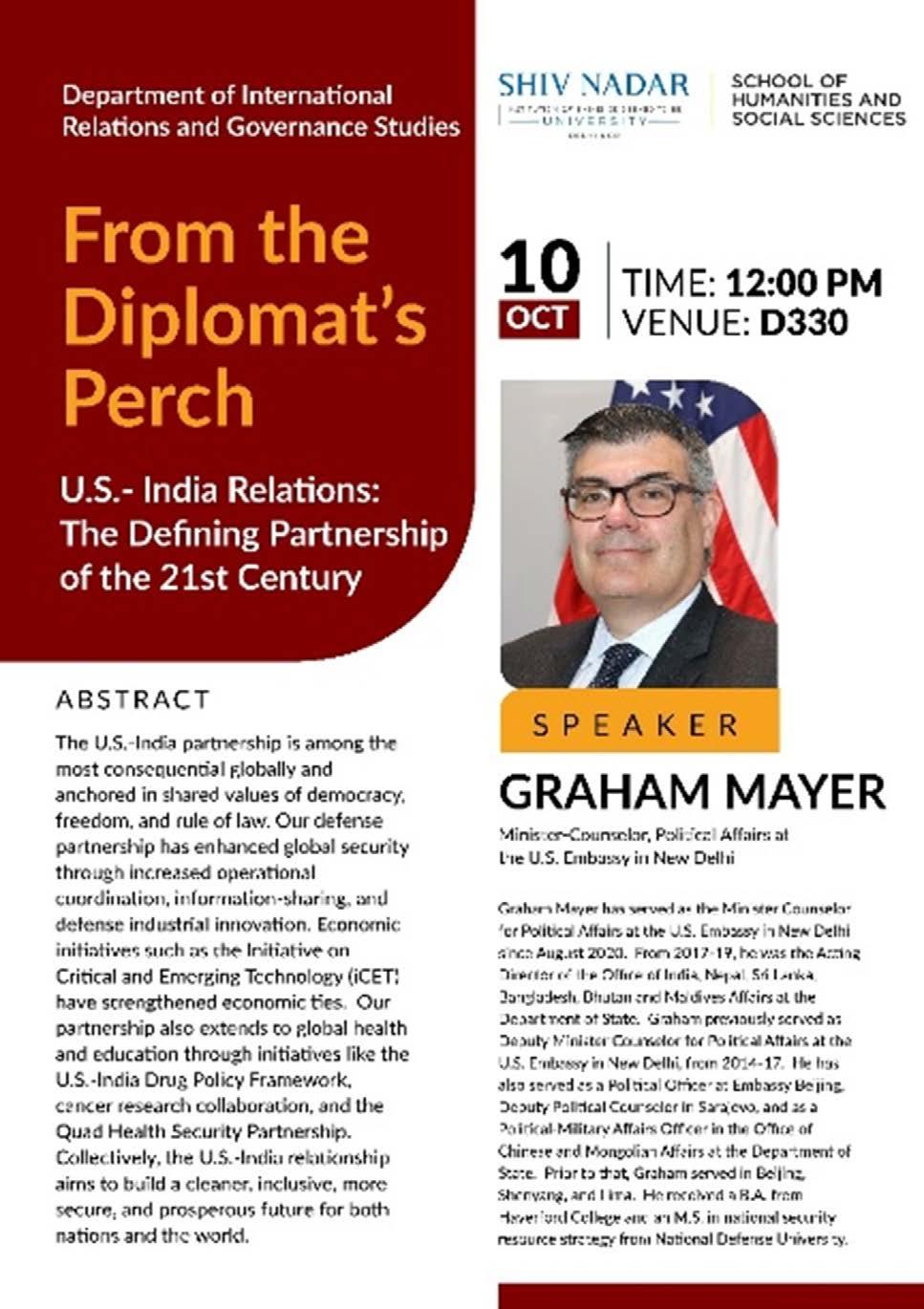



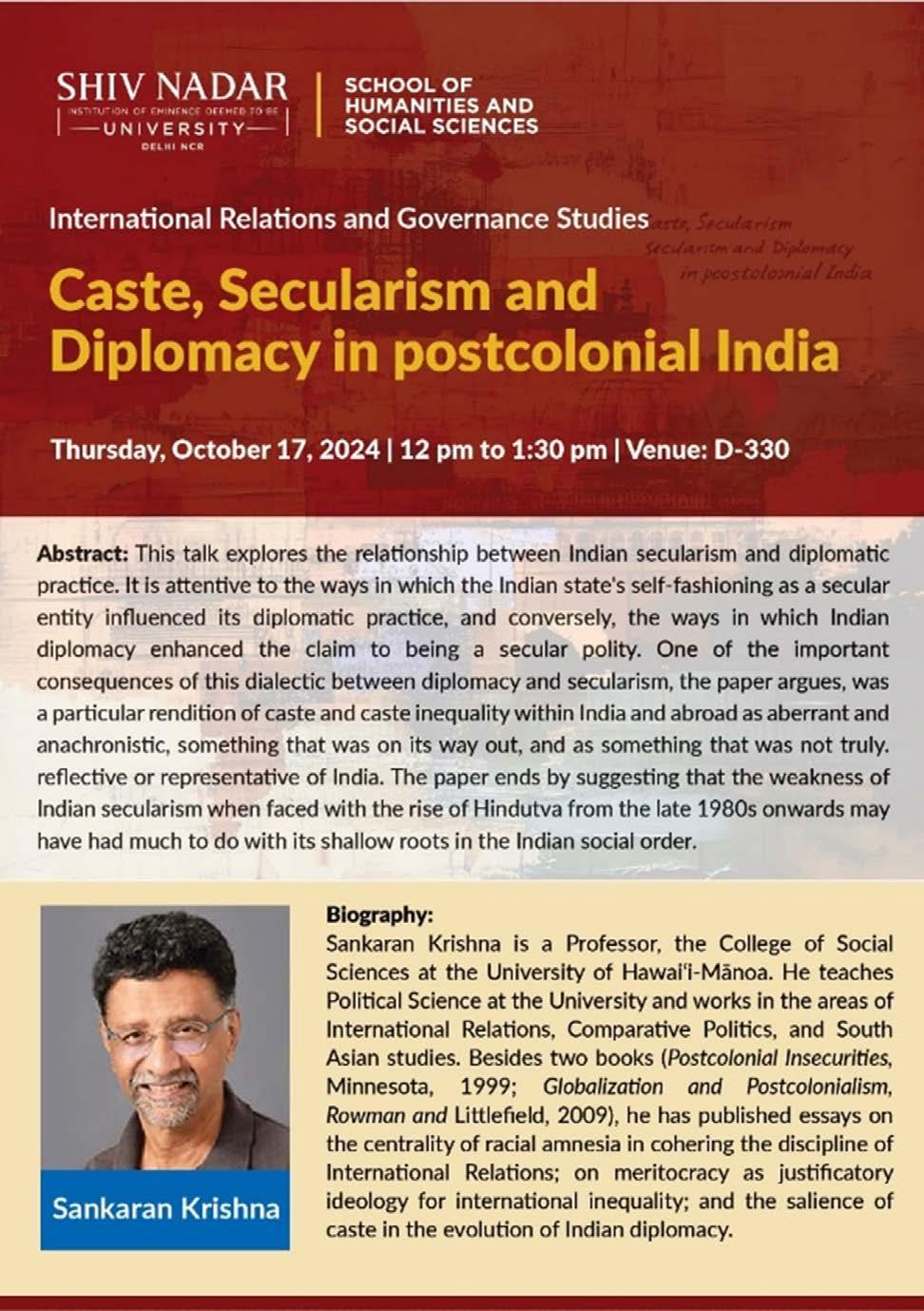







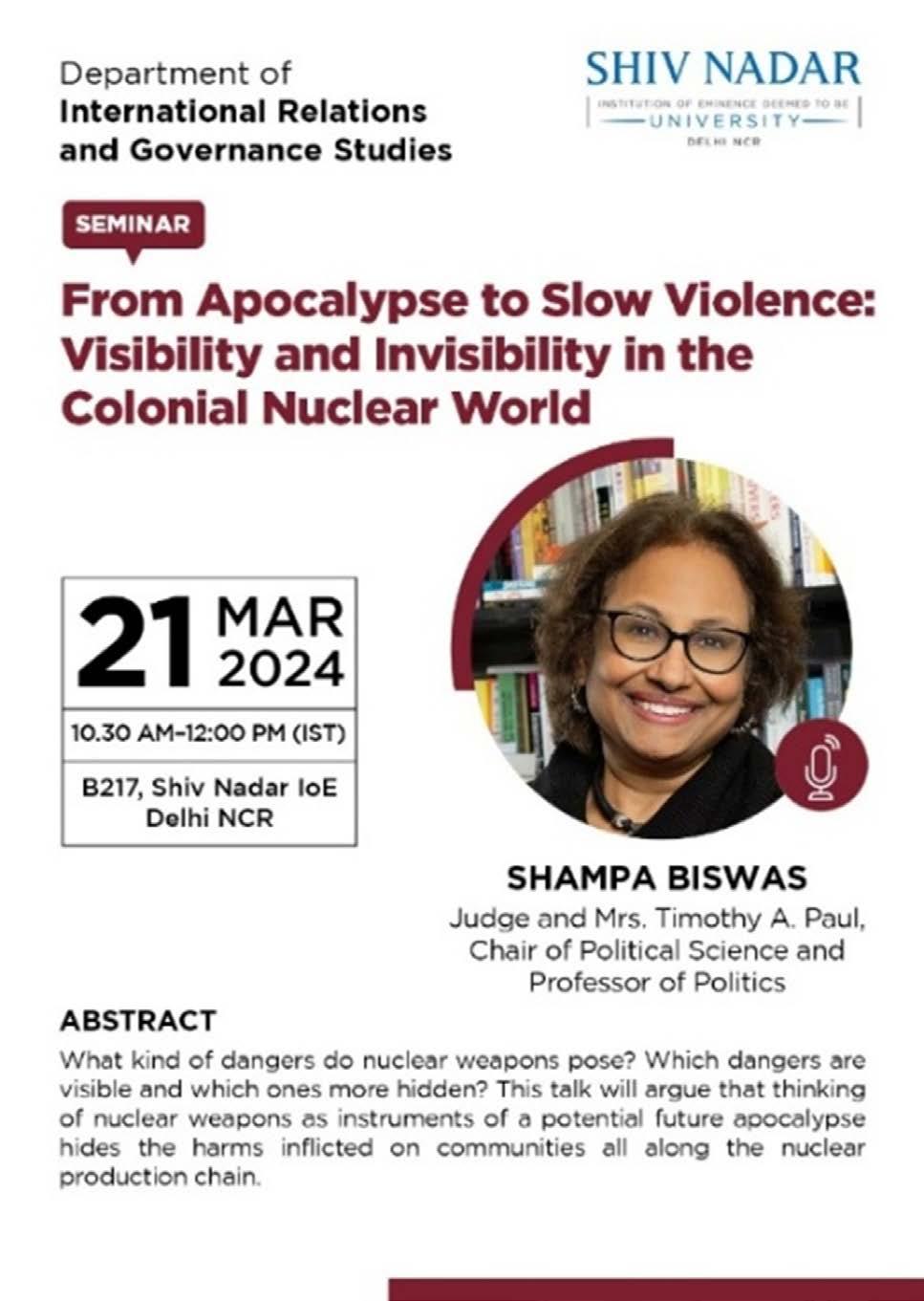
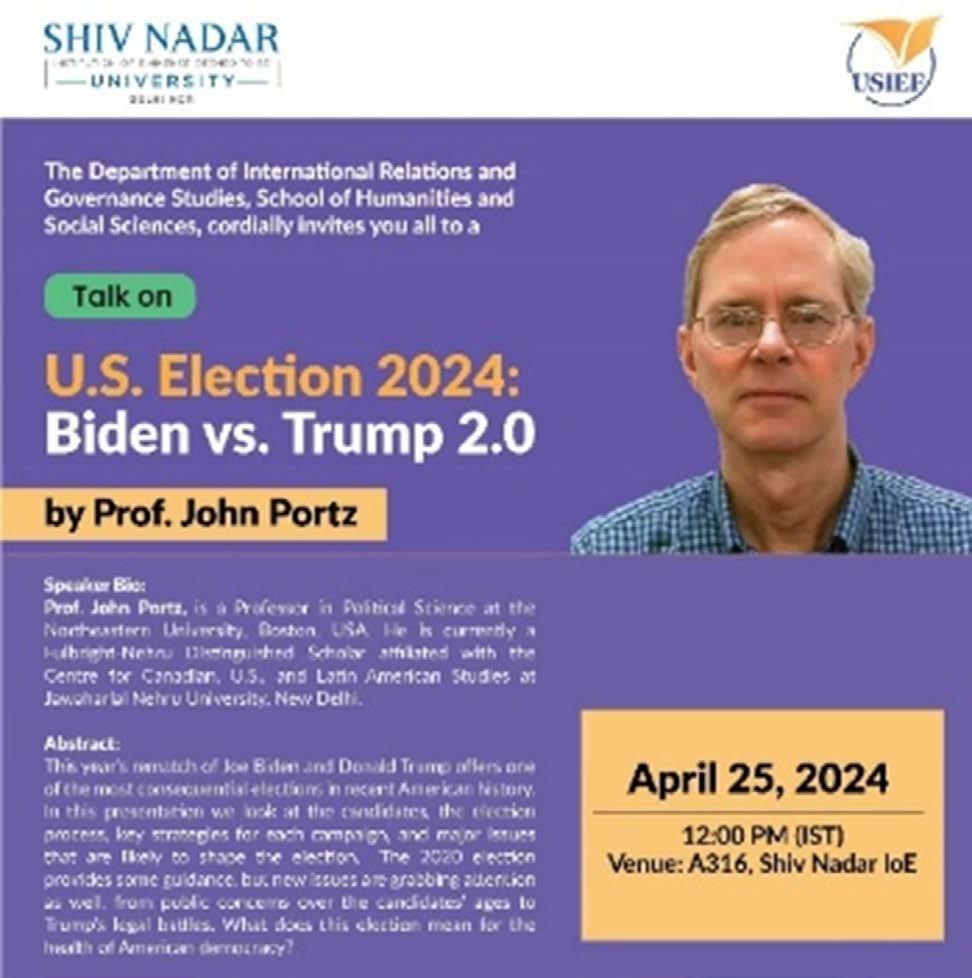
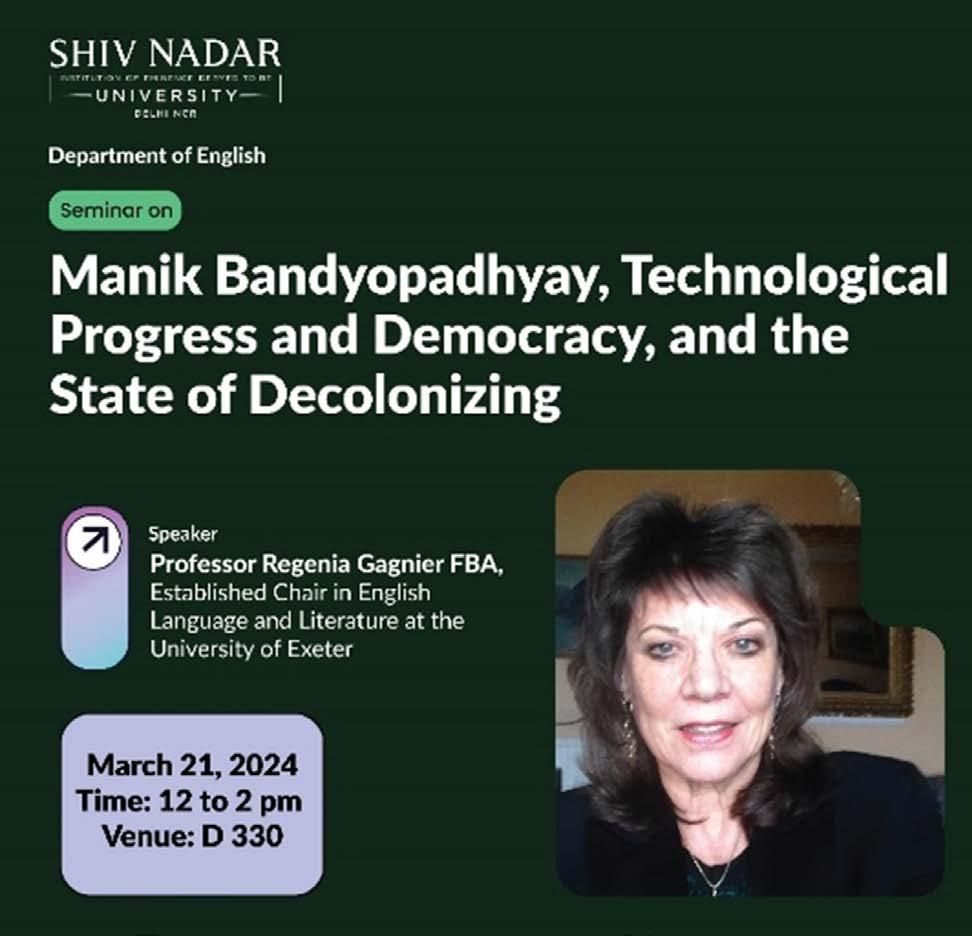
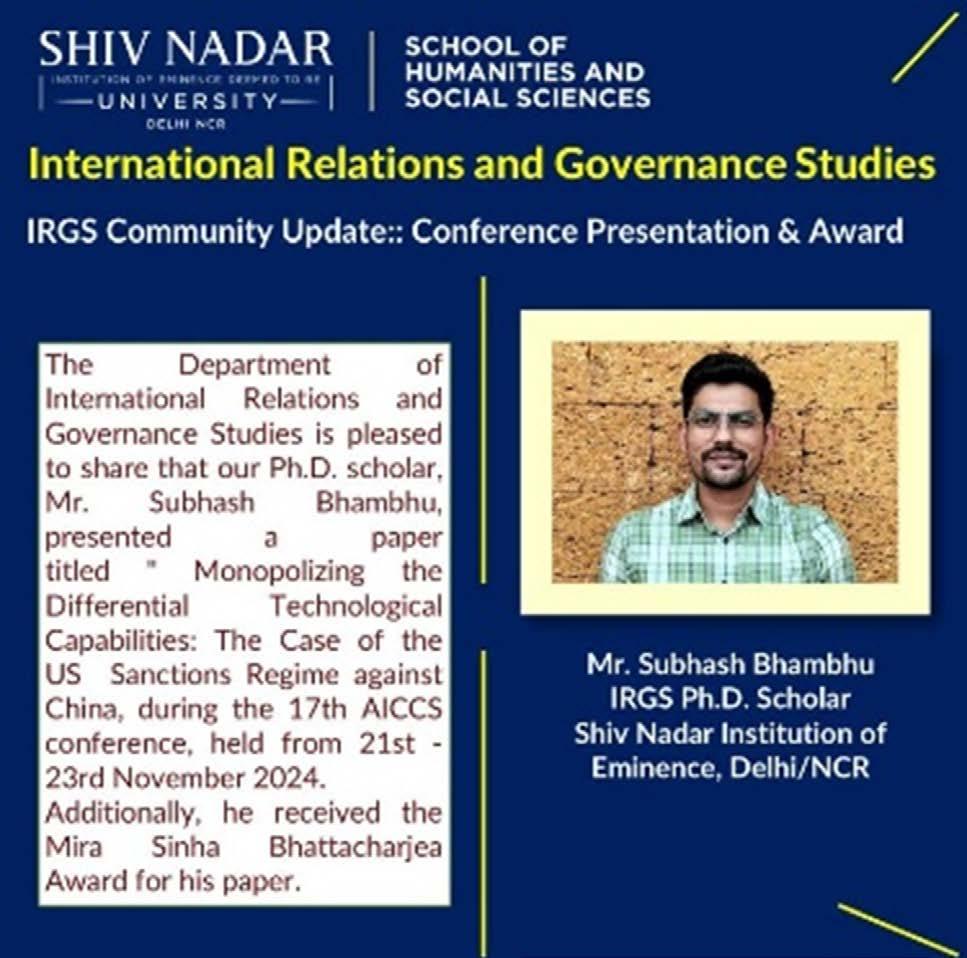



INSTITUTIONAL PRACTICES
Shiv Nadar University Student Council
The Student Council at Shiv Nadar University consists of the Cabinet and the Executive Council, a unicameral body of senators elected every year by all students at the university through a secret ballot. Many significant committees on Campus have a representative student member to represent the voice of the student body.
The Campus, besides, has,
• Robust policies and procedures to manage the security of the 300-acre campus.
• All members of the University have access to human resources and administrative policies.
• The University has a whistle-blower policy.
• Different university functions duly represent the procurement policies and the purchase committee on campus to facilitate decisionmaking.
PARTNERSHIPS
The Global Politics of Post-Growth
Dr. Rajeswari Raina, Professor, Department of International Relations and Governance Studies, is a partner and member in the DFG-funded research network project ‘The Global Politics of Post-Growth.’ Dr. Matthias (Matt) Kranke, Senior Research Fellow at the Käte Hamburger Kolleg / Centre for Global Cooperation Research, University of Duisburg-Essen, Germany, leads the project (2022-2025).
Governance and Inequality
Dr. Yasmeen Arif, a professor at the Department of Sociology, was invited by Grip Inequality as a visiting researcher. During her stay with GRIP in Bergen, Yasmeen worked particularly with GRIP-affiliated senior researcher Bjørn Enge Bertelsen to address questions on identity and global intellectual labor. On another GRIP research project, she worked with Elina Troscenko on Political Protests and New Forms of Citizenship. Dr. Arif also lectured on Governance and Inequality at the Bergen Summer Research School.

The Global Conference on New Sinology - The Art of Power in Zhongnanhai
The Centre for Himalayan Studies, at Shiv Nadar University in partnership with the Organisation for Research on China and Asia (ORCA) and The Policy Perspectives Foundation, organized the Global Conference on New Sinology (GCNS) that aims to assemble the finest global minds in Sinology from diverse academic backgrounds to deliberate the instruments and impacts of China’s art of power. The conference was held on September 26-27, 2024, with the theme of ‘The Art of Power in Zhongnanhai’, which encapsulated the symbolic and substantial preeminence of China’s seat of power in politics, economics, foreign policy, and military affairs.

Geopolitical Landscape and India’s approach to navigate
Dr. Atul Mishra, Associate Professor, Department of International Relations and Governance, is regularly invited to the Sushma Swaraj Institute of Foreign Service, Ministry of External Affairs, to deliver lectures to diplomats and officers on how India’s foreign policy is responding to contemporary geopolitical developments, on contemporary geoeconomics -- sanctions, tariffs, dollar dominance, and connectivity projects -- and how they shape contemporary international affairs. This is a significant initiative by the Institute to expose officers of non-IFS services to foreign policy ideas and practices.



Shiv Nadar Institution of Eminence is fully committed to the UN Sustainable Development Goals (SDGs). We have embraced a four-pronged strategy for SDGs through teaching, research, our core institutional practices, and partnerships.

Deepa Hazrati Senior Manager, Office of the Vice-Chancellor deepa.hazrati@snu.edu.in
